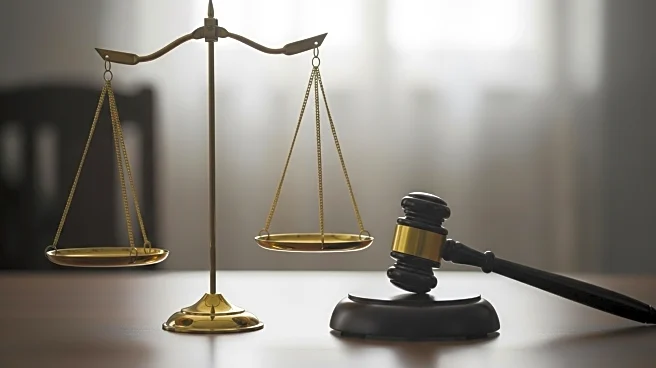What is the story about?
What's Happening?
A federal judge has ruled that Kilmar Abrego Garcia, an alleged MS-13 gang member, is entitled to another court hearing after the Department of Justice (DOJ) was found to have likely engaged in a 'vindictive' prosecution. The decision comes after Abrego Garcia was deported to El Salvador and later brought back to the U.S. to face human trafficking charges. The judge noted that the DOJ's actions appeared retaliatory, following Abrego Garcia's successful legal challenge against his deportation. The case has drawn attention due to its implications on immigration policies and the legal processes involved in deportation and prosecution.
Why It's Important?
This development highlights significant concerns regarding the DOJ's handling of immigration-related prosecutions, particularly in cases involving alleged gang members. The ruling underscores potential misuse of prosecutorial power, which could have broader implications for how similar cases are managed in the future. The case also reflects ongoing tensions surrounding U.S. immigration policies, especially those implemented during the Trump administration. The outcome of this hearing could influence future legal strategies and policies related to deportation and human trafficking prosecutions.
What's Next?
The additional hearing ordered by the judge will provide an opportunity to further examine the DOJ's motivations and actions in this case. It is expected that both the DOJ and Abrego Garcia's legal team will present evidence and arguments regarding the alleged vindictiveness of the prosecution. The outcome could lead to changes in how such cases are prosecuted and potentially impact the legal status of Abrego Garcia. Stakeholders, including immigration advocates and legal experts, will likely monitor the proceedings closely for its implications on future immigration enforcement and legal practices.
Beyond the Headlines
The case raises ethical questions about the balance between national security concerns and individual rights within the U.S. legal system. It also highlights the challenges faced by immigrants who are entangled in legal battles that intersect with broader political and social issues. The potential for perceived retaliatory actions by government agencies could erode public trust and necessitate reforms to ensure fairness and transparency in legal proceedings.
















